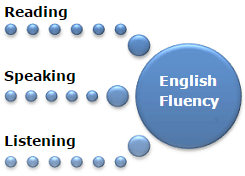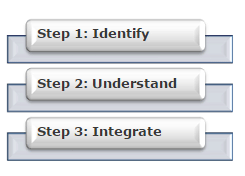Intensive Spoken English Course
Contact relevant Texas School of Continuing Education & Recruitment branch / Email info@tscer.org
12808 W. Airport Suite 300 Sugarland TX 77478 - CALL : 832-240-1786
4203 Woodcock Drive Suite 209 San Antonio TX, 78228 – CALL : 210-871-0678
13140 COIT ROAD, SUITE 370, DALLAS, TX 75240 – CALL : 972-687-7746

in Houston brought to you by TSCER providing hands on fluency development, English language, and business writing skills to get you into entry and middle-level management jobs. No need to worry if you have migrated as nonnative speaker from your primary country.
Steps to Learning English
To become a fluent English speaker, you must study and master reading, listening, and speaking. The lessons are structured to give you practice in all three areas at the same time.


A complete and efficient solution to Learn English speaking
Course Name: English as Second Language
Length: 1 year
Content:
Developing English fluency progressively for those who have English as a second language (non-native speakers) to get trained from beginning to advanced levels based on a cumulative skills and development methodology. Students are stimulated and motivated to learn through a variety of activities and procedures, including task-based learning activities. On-line video and audio programs stimulate vocabulary and pronunciation development, including practice inappropriate stress, intonation, and rhythm patterns. Recorded listening passages also build vocabulary and teach oral comprehension skills. Students are encouraged to participate in a variety of in-class activities. They work individually, in pairs, and in small groups on linked activities that are built around each unit’s theme.
Cost of Program: $6000 includes books
Classes Jan to May and August to Dec
Contact Hours: 456 hours
Levels: Beginners, Intermediate, and Advance
Eligibility: Based on entry level test
Beginners 1 & 2:
Listening and Speaking
1. Understand the function and use of the conventions of academic and informal language when speaking as it relates to personal information and basic needs.
2. Use a dictionary, a glossary, or a thesaurus to determine or confirm the meanings of words and phrases.
3. Produce basic sounds, words, and phrases as modeled in an instructional setting with very limited control over rhythm, stress, and intonation.
4. Use nonverbal and simple verbal strategies to demonstrate understanding or lack of understanding of basic concepts, words, or phrases.
5. Demonstrate limited comprehension especially of written language.
6. Memorize a limited set of written or spoken words and phrases.
Reading and Writing
1. Construct limited meaning from reading materials on learned topics.
2. Read and understand simple sentences 3-6 words long.
3. Answer simple comprehension questions.
4. Follow simple writing directions.
5. Demonstrate ability to copy letters of the alphabet, numbers, and isolated words/phrases.
6. Accurately write basic personal demographic information such as name, address, and phone number.
7. Recognize correct sentence format.
Intermediate 1 & 2:
Listening and Speaking
1. Participate in and demonstrate understanding of routine questions and answers, statements, and face-to-face conversations
2. Understand and follow simple directions
3. Ask speaker to repeat for clarification
4. Develop vocabulary related to listening and speaking tasks
5. Demonstrate understanding of contracted words such as “gonna” and “shoulda”
6. Express functions of the English language such as making requests and giving advice
7. Express functions of the English language such as agreeing and disagreeing and expressing ability and possibility
8. Use modal verbs such as can, could, may, might, maybe, should, ought to, have to, and must
9. Speak using simple, compound and some complex sentences
10.Give a short speech on an assigned topic, using Standard English that can be understood by others
11.Use monolingual English dictionary to identify pronunciations
12.Identify main ideas and details from a listening passage
Reading and Writing
1. Read and demonstrate an understanding of both stated and unstated information in a variety of reading material
2. Predict meaning of unfamiliar vocabulary using contextual clues
3. Use monolingual English dictionary to identify meanings and grammatical forms of words
4. Identify topic and main idea of a reading passage
5. Write well-developed and organized paragraphs with details to support main idea using facts, opinions, or examples
6. Use simple present and present progressive verb tenses
7. Used past progressive, present perfect, and present perfect progressive verb tenses
8. Use basic infinitives and gerunds
9. Identify and write compound and simple complex sentences
10.Use pre-writing techniques to generate ideas
11.Write well developed and organized paragraphs with adequate support
12.Revise writing for content and organization and edit mistakes in paragraph formation
Advance 1& 2:
Listening and Speaking
1. Understand routinely detailed, complex information that is orally presented in lectures, audio/video programs, and other media.
2. Think critically about information received orally and visually, then integrate and synthesize that information so that it can be used to accomplish a variety of purposes, including successfully completing college/university course assignments, exams, and other academic objectives.
3. Speak clearly, with good diction and grammar, so that the speech is understood by both native and non-native English speakers
4. Collect, organize, and present information in various audio/video formats and genres to accomplish a variety of professional, business, and academic communication purposes.
5. Research, organize, and produce basic audio/video programs and presentations for the business and academic environments
Reading and Writing
1. Read many types of formal and informal texts (excluding those related to specialty fields) with reasonably good comprehension, speed, and accuracy.
2. Review academic, business, and technical documents (using basic skimming and scanning techniques) to gain understanding of main ideas and points and to gather key facts and information.
3. Think critically about information received in written and graphical form, then integrate and synthesize that information so that it can be used to accomplish a variety of purposes, including successfully completing college/university course assignments, exams, and other academic objectives.
4. Write clearly, with good composition and grammar, so that native English readers can understand it.
5. Research, organize, and produce basic documents, such as essays, letters, articles, and reports to accomplish a variety of professional, business, and academic communication purposes.
Contact relevant Texas School of Continuing Education & Recruitment branch / Email info@tscer.org
12808 W. Airport Suite 300 Sugarland TX 77478 - CALL : 832-240-1786
4203 Woodcock Drive Suite 209 San Antonio TX, 78228 – CALL : 210-871-0678
13140 COIT ROAD, SUITE 370, DALLAS, TX 75240 – CALL : 972-687-7746
